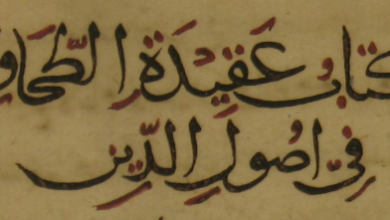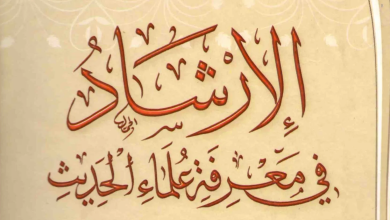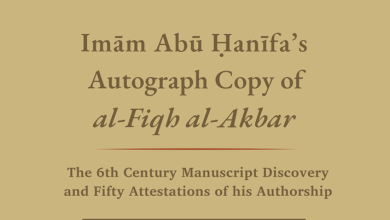Weak narrations in Kitab al Tawhid of Ibn Abdal Wahhab
Some Examples of Hadith Graded Weak by Nasir Al-Din Al-Albani as Found in the Pseudo-Salafi Aqida Text Kitab Al-Tawhid of Muhammad ibn Abdal Wahhab
I quote from the introduction of The Prophet’s Prayer Described of ‘Shaykh’ al-Albani,
” … this is because I hold that the authentic ahadith are sufficient, leaving no need for anything weak, for the latter does not amount to anything except dhann (conjecture, suspicion), and incorrect conjecture at that; as the Exalted says, ‘ … and conjecture is of no use against the truth.’ “
[…..]We can see from these condition the following; The first principle lays out the obligation to make known the weak ahadith from the authentic, even in fada’il al-a’mal. Something which many people who follow this opinion do not do, not only that but many of the scholars who follow this opinion today are not even capable of discerning whether the hadith they are quoting contains the types of weaknesses indicated above!
Forget fada’il al-a’mal, what follows are some examples of Hadith considered weak by ‘Shaykh’ Al-Albani found in the Salafi ‘Aqida text of Muhammad Ibn Abdul Wahhab – Kitab Al-Tawhid:
1. He cites in Chapter 1: The Virtue of At-Tawhid and what Sins it Expiates
Abu Sa’eed AI-Khudri narrated that Allah’s Messenger said,
“Musa (Moses) said: ‘O my Lord, teach me something by which I can remember You and supplicate to You…..”
Pseudo-Salafi Hadith specialist Nasir Al-Din Al-Albani listed it as Da’eef (weak) in Al-Targhib wa’l Tarhib (923).
2. He cites in Chapter 5 (English Version E.V.):
The hadith of Imran Ibn Husain (ra), that Allah’s Messenger saw a man with a brass ring in his hand, and he asked him: “What is this?” He replied: “It is for protection from al-waahinah.” The Prophet answered:
“Remove it at once, for verily, it will not increase you except in weakness, and were you to die whilst wearing it, you would never be successful.”
Wahhabi Hadith specialist Nasir Al-Din Al-Albani listed it as Da’eef (weak) in Al-Targhib wa’l Tarhib (2015).
3. He cited in ( Chapter 19- E.V.) :
“Cursed those women who visit the graves and those who take them as places of worship and hang lights around them.”
4. He cited in (Chapter 23- E.V.) :
The hadeeth of Qutun Ibn Qabeesah informed us from his father that he heard the Prophet say: “Verily, al-‘iyaafah, at-tarq and at-tiyarah are all acts of sorcery.
Wahhabi Al-Albani lists it as Da’eef (weak) in Al-Targhib wa’l Tarhib (1794).
5. He listed in (Chapter 23- E.V.) :
The hadeeth of Abu Hurairah (ra) where he said:
“Whoever tied a knot and blew on it has committed an act of sorcery, and whoever commits an act of sorcery has committed an act of Shirk, and whoever wore an amulet will be left to its control.”
6. He listed in ( Chapter 26- E.V.) :
The hadeeth of `Uqbah Ibn `Amir (ra), that he said: “At-tiyarah was mentioned before the Messenger of Allah and he said: “The best form of it is al-f`al, for it does not prevent a Muslim (from achieving his objective). Whenever any of you sees something he dislikes, he should say: “Oh, Allah ! None but You Brings good things. None but You can prevent evil things. There is no power and no strength except in You.”
7. He listed in ( Chapter 30- E.V.) :
The hadeeth of Abu Sa’eed Al-Khudri (ra), in a marfoo’ form that he said: “It is from a lack of certainty (of faith) that a person pleases people and by so doing, invokes Allah’s Anger, and that he praises them for the livelihood which Allah has given him and that he blames them for the things not bestowed by Allah . Not even the avarice of the greediest of people can bring Allah’s Blessings, nor can the aversion of the one who hates it prevent it.”
8. He listed in ( Chapter 62- E.V.) :
The hadeeth of Jubair Ibn Mut’im (ra) that he said: “A bedouin Arab came to the Prophet and said: “Oh, Messenger of Allah ! The people are enfeebled, families are starving and wealth has perished, so ask your Rabb to send us some rain and we will seek Allah’s intercession upon you and yours upon Allah .” The Prophet said:
“Subhaan Allaah! Subhaan Allaah!” He continued to do so until the effect of it was apparent in the faces of his Companions. Then he said: “Woe to you! Do you not know Who Allah is? Allah’s Sublimity is far greater than that! There is no intercession of Allah upon anyone.”
Wahhabi Al-Albani said about this hadith: “It is weak”, in : Takhrij Al-Meshkat (5727)







Assalamu alykum this is super excellent, wonder what they got to say on this one! This book which is normally given in masses and to ‘reverts’ they didn’t even realise there own so called ‘muhadith’ declared some narrations weak!!
Jazakallahu khyran for the link on the other article to buy the kitab tawheed of shaykh abu mansur al Maturidi rh I bought it and ta’wilat ahlasunnah as well.
There is a recent new book regarding bid’ah by (shaykh) sayf al asri.. Have you got the pdf for it to share if possible inshallah or some qoutes from it, currently its been out of stock for a while in bookstores.
You all make me well happyy Alhamdulillah i frequent your website daily please continue to add moree inshallah Allah bless you abundantly in both worlds Ameen.
Assalam alaikm the jurists should at least clarify it again and again by stressing either either 11 or 20 rakaats is correct because in my country were i live they are saying its even there to pray 20 rakaats simply because the prophet did not pray that
Islam Ibrahim
dears…
i wants to know more about the traditional salafism…and their approaches towards the hadith. pls help me any one to complete my research about it…
answers send to my email :shoukathkodappana22@gmail.com
Jazakallahu khayran for pointing out the weak hadeeths in the book for those who are trying to study it